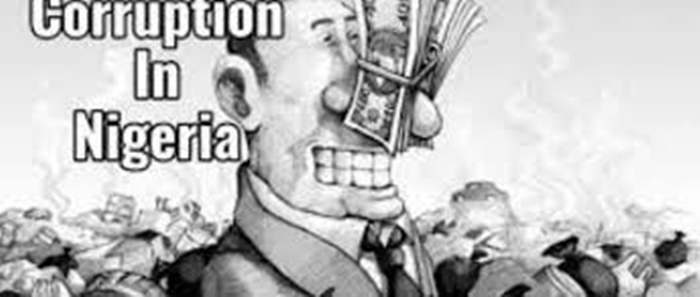In this article, we discussed the impact of bribery and corruption in government, the causes of corruption and the consequences.
Definition
Corruption is a comprehensive set of crimes that involve “the abuse of commended power for private gain.” Some of these crimes are common, and unwillingly accepted as just the price of doing business. Others actively stifle competition and subvert the free market.
Corruption can happen anywhere such as in business, government, the courts, the media, and in civil society, as well as across all sectors from health and education to infrastructure and sports. It can involve anyone, for example politicians, government officials, public servants, businesspeople or members of the public. Examples of corruption can include:
Politicians misusing or misappropriating public money, or granting public jobs or contracts to their sponsors, friends and families
Public servants demanding or taking money or favors in exchange for services
Wealthy individuals using their influence on governments for their own interests
Corporations bribing officials to get lucrative deals
Someone exerting influence in decision-making without declaring an interest in one of the parties involved
Corruption has devastating effects on businesses and societies. It erodes trust, weakens democracy, hampers economic development and further exacerbates inequality, poverty, social division and the environmental crisis.
A bribe is defined as an inducement or reward that is promised, offered or given to improperly gain any commercial, contractual, regulatory or personal advantage. Bribes may be paid in advance, as an inducement to a person to act improperly, or retrospectively, pursuant to a previous promise, understanding or agreement.
Examples of bribery might include:
A public official on a trade delegation to another country requesting first-class travel and luxury accommodation in return for favorable treatment
Providing access to someone’s private details such as banking details or health data in return for a payment or gift
Offering a payment to a public official to circumvent the law such as to a judge in a court case
In procurement, providing an incentive in order to gain access to tender assessment criteria, or details of rival bids, or to receive a preferential evaluation of a submitted tender
Corporations and other businesses providing lavish hospitality with a view to gaining favorable terms or other business advantages
Businesses providing influencers with free or heavily discounted goods and services in return for glowing reviews and publicity
Terms that are associated with bribery and corruption include, but are not limited to:
Extortion
Embezzlement
Kick-backs
Back-handers
Pay off
Exploitation
Slush funds
Fraud
Nepotism
Sweeteners
Graft
Collusion
Facilitation payment
Shell company
Solicitation
Buy someone off
Match-fixing
Conflict of interest
Bribery and corruption can have many consequences for a government, including:
Damaged public trust
Corruption can wear away public trust in the government, which can be difficult to repair.
Inefficient use of resources
Corruption can lead to misallocation of public resources, which can slow economic growth and development.
Poor quality goods and services
Corruption can lead to a decrease in the quality of goods and services, and make them more expensive and time consuming to obtain.
Unfairness
Corruption can lead to unfairness, where those who are most successful at extracting funds get ahead, to the detriment of more honest colleagues and competitors.
Health crises and unnecessary deaths
Corruption can lead to unsafe infrastructure and health crises.
Human rights violations
Corruption can lead to the misuse or misallocation of public funds, which can negatively impact civil and political rights.
Reputational damage
Corruption can damage the reputation of the offending party, which can lead to a loss of business and financial damage.
Reduced employee morale
Employees who know they work for a corrupt company may feel like criminals and be less likely to work hard or honestly.
Causes of corruption
Although corruption differs from country to country, it is possible to identify some of the key common driving forces that generate it. What is common to all countries, which are among the most corrupt, has been identified by Svensson, all of them are developing countries or countries in transition,
With rare exceptions, low-income countries,
Most countries have a closed economy,
The influence of religion is visible (Protestant countries have far the lowest level of corruption),
Low media freedom and
A relatively low level of education.
Conclusion
there are many countries and international organizations working in collaboration to struggle all levels of bribery and corruption. Bribery and corruption are not controlled by borders; it is an international problem needing international solutions. International cooperation can help produce both the will to fight bribery and corruption and the capability to do so.


